Valdo Calocane: What do we know about the Nottingham attacks killer?
- Published
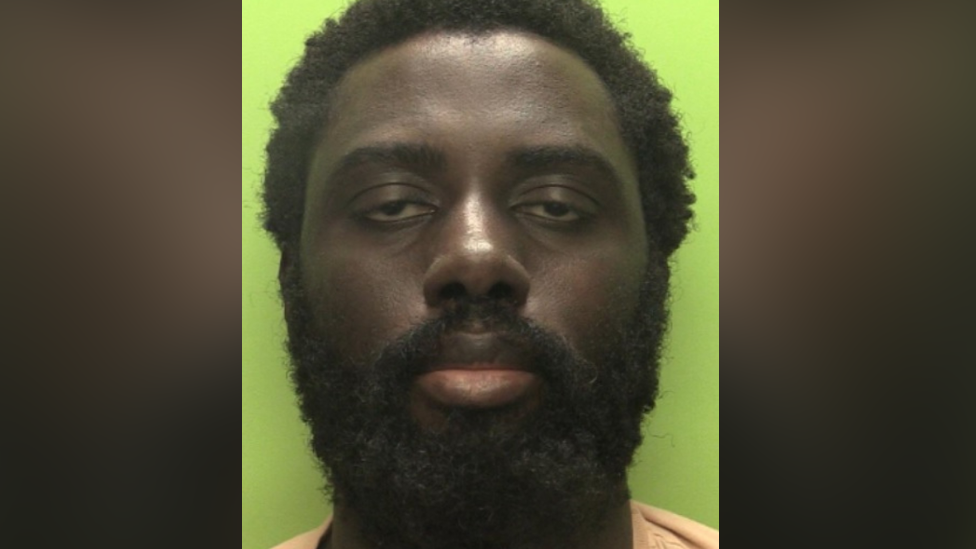
An arrest warrant had been issued for Valdo Calocane in September 2022
Valdo Calocane is likely to spend the rest of his life in a high-security hospital, after being sentenced for stabbing three people to death and trying to kill three others with a van.
But what do we know about the perpetrator of the Nottingham attacks?
Where did Valdo Calocane grow up?
Valdo Calocane, who refers to himself as Adam Mendes, was born in Guinea-Bissau on 4 September 1991.
His family moved to Madeira when he was about three years old, and then to Lisbon in Portugal when he was about eight years old.
He and his family came to the UK in 2007 when he was 16 years old.
According to the prosecution at Nottingham Crown Court, his schooling was "largely uneventful".
He chose not to do A-levels because he did not think he could achieve the grades needed, the court was told.
He instead got work as a labourer or cleaner.
What was Calocane doing in Nottingham?
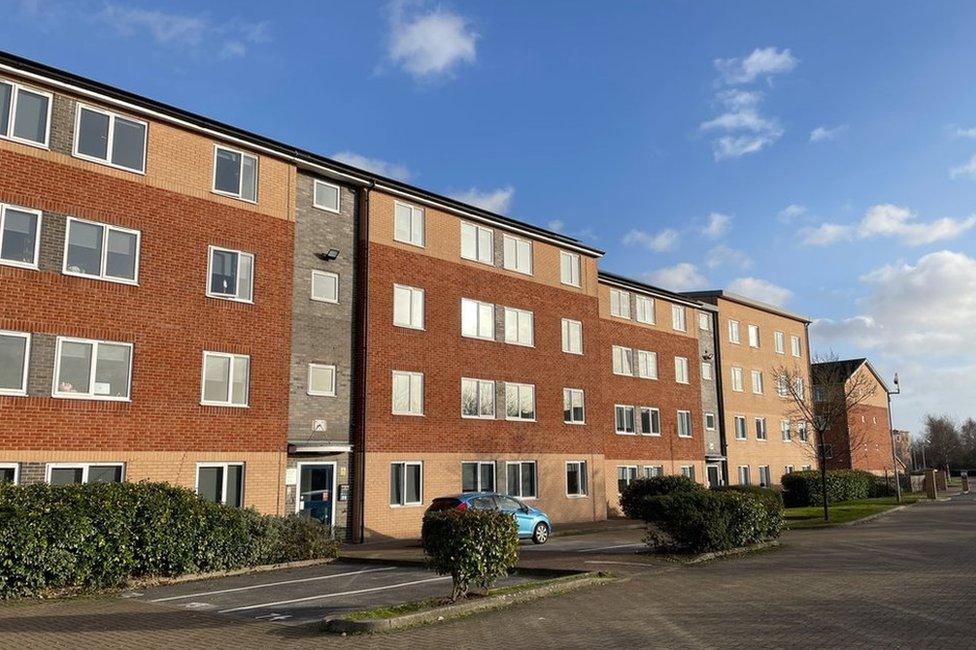
Calocane had previously lived in a student flat in Madison Court, Derwent Way, Lenton
Calocane later went back into education and did a degree in mechanical engineering at the University of Nottingham.
He graduated in June 2022, when he was aged 30.
He had been living in a student flat in Derwent Way, in the Lenton area of the city, but the court heard he was evicted as a result of assaulting his flatmates.
In May, he briefly worked for Arvato Supply Chain Solutions, at a distribution centre the business has near East Midlands Airport.
For about six months before the killings, he had been living in a house-share in Burford Road, on the border of the Forest Fields and Hyson Green areas.
When did Calocane's mental health problems begin?
Defence barrister Peter Joyce KC said his client's mental illness started in 2019.
Elias Calocane told police he first became aware his brother was suffering from mental health problems while he was studying for his degree.
He apparently believed he was being spied on by his housemates and by MI6, and that his family was under threat.
He was prescribed anti-psychotic medication but stopped taking it, which the prosecution said led to a further decline in his mental health.
Calocane's family became concerned about his mental health again in May 2021. According to his brother, he had been hearing voices, telling him his family members would die.
Mr Joyce told the court that Calocane even travelled to the MI5 headquarters on 31 May 2021 to try to stop them controlling him.
"That's not a concoction by him," he said.
"There is a photograph taken by their systems at Thames House, saying 'please arrest me' - effectively 'stop controlling me'."
Was Calocane already known to police and mental health services?
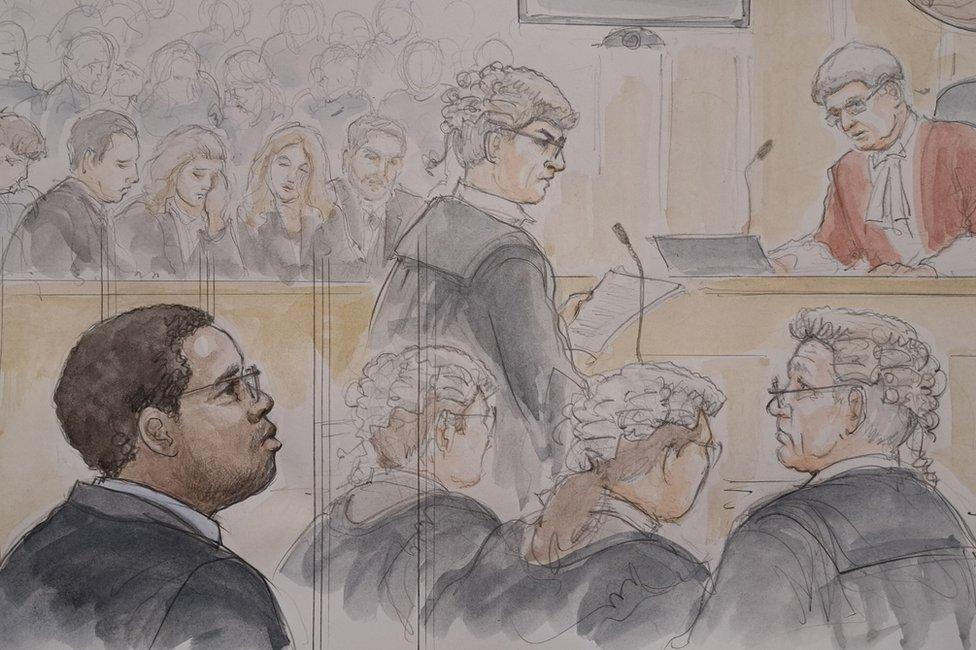
The prosecution told the court about Calocane's previous contact with police
Nottinghamshire Police said it had "previously engaged" with Calocane "on a number of occasions between 2020 and 2022", saying this was "mostly while supporting our colleagues in the NHS".
On 23 May 2020, the court heard he went to A&E, believing he was having a heart attack, then went home and tried to get into another apartment in his building by breaking down the door.
He was arrested for criminal damage and assessed by psychiatric services while in custody.
They concluded he was psychotic but that the risk to others was low, and that he should be referred to a crisis team for review at home.
He was released without charge, but an hour later he knocked down another door in his apartment block.
Calocane was arrested for criminal damage a second time, re-assessed, then detained under the Mental Health Act.
He was admitted to psychiatric services at Highbury Hospital on 25 May 2020.
He was treated with anti-psychotic medication and discharged on 17 June 2020 to the care of a crisis team, and advised to take medication for up to nine months.
The following month, the court heard he forced his way into a third flat in his apartment block, and was re-admitted to Highbury Hospital.
His medication was increased and he was managed in the community after this.
Calocane admitted to medics during a home visit in August 2021 that he had stopped taking his medication. After this, he evaded contact with the community mental health team.

Valdo Calocane was charged with assaulting a police officer but failed to turn up to court
As a result, police had further contact with him when a warrant was secured to gain entry to his home and detain him under the Mental Health Act.
This was executed on 3 September 2021, but he is alleged to have assaulted a police officer while he was being transported to Highbury Hospital.
He was admitted to inpatient services, but then allowed to return to his flat, until mid-January 2022 when the prosecution said he was "involved in an altercation with a flatmate".
Following two further assessments under the Mental Health Act, he was admitted as an inpatient again on 27 January 2022, but then discharged on 24 February 2022 to the care of a community team.
Calocane was eventually charged with assault by beating of an emergency worker and was due to appear at Nottingham Magistrates' Court on 22 September 2022, more than a year after the incident.
But he failed to turn up at court, and a warrant for his arrest was issued.
However, he was never arrested, and the warrant was still outstanding at the time of the Nottingham attacks.
Rob Griffin, Nottinghamshire Police Assistant Chief Constable, said: "I have personally reviewed this matter and we should have done more to arrest him.
"However, because of the circumstance prevailing, at the time of the alleged assault, in my opinion it is highly unlikely that he would have received a custodial sentence.
"Of course, an arrest might have triggered a route back into mental health services, but as we have seen from his previous encounters with those services, it seems unlikely that he would have engaged in this process."
Does Calocane have any previous convictions?
In addition to the alleged assault of the police officer and his flatmates, the court heard Calocane attacked two colleagues when he briefly worked at Arvato Supply Chain Solutions.
The alleged assaults were on 5 May - four days after he started working there, and about six weeks before the Nottingham attacks.
The prosecution did not say how serious the reported attacks were, and whether or not they were reported to police.
The prosecution said Calocane had no previous convictions at the time of the Nottingham attacks.
What was Calocane eventually charged with?
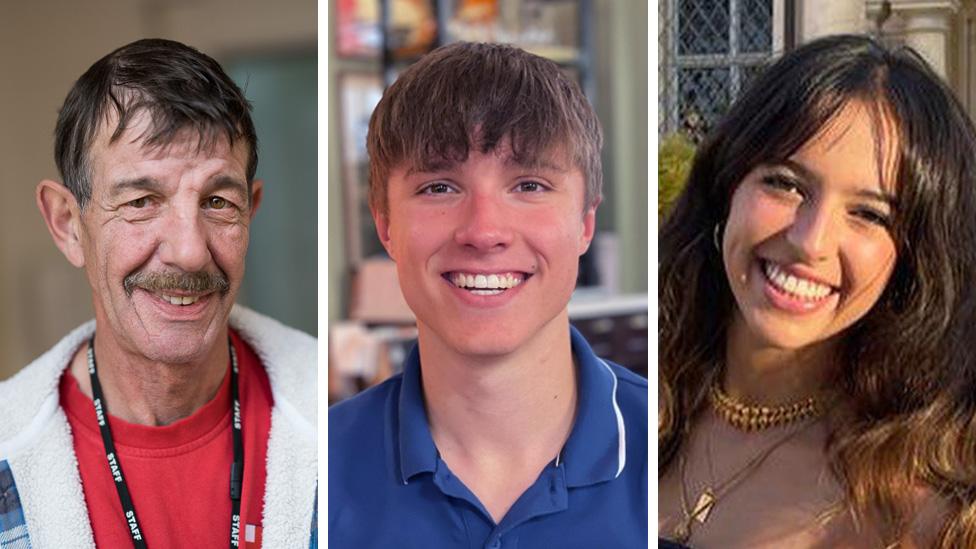
Ian Coates, Barnaby Webber and Grace O'Malley-Kumar were all stabbed to death
Calocane fatally stabbed students Barnaby Webber and Grace O'Malley-Kumar, both 19, and school caretaker Ian Coates, 65, on the streets of Nottingham on the morning of 13 June.
He then stole Mr Coates's van and used it to drive into three other people, seriously injuring them.
He was arrested and later charged with three counts of murder and three counts of attempted murder.
However, while on remand, the prosecution said he was transferred to a "secure hospital setting" and assessed by three forensic psychiatrists.
The joint assessment was that Calocane was suffering from paranoid schizophrenia at the time of the attacks, and this resulted in an abnormality of mental functioning, which contributed to him committing the offences, and also impaired his ability to exercise self-control.
At a hearing on 28 November, he pleaded not guilty to three counts of murder but guilty to manslaughter, on the basis of diminished responsibility. He also admitted three counts of attempted murder.
His pleas were accepted on Tuesday.

Follow BBC East Midlands on Facebook, external, on X, external, or on Instagram, external. Send your story ideas to eastmidsnews@bbc.co.uk, external.
Related topics
- Published25 January 2024
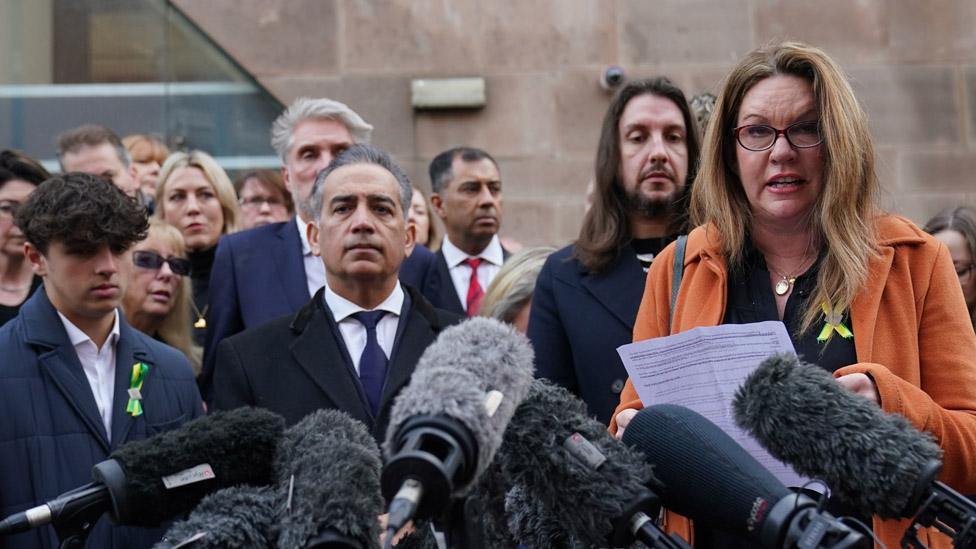
- Published24 January 2024
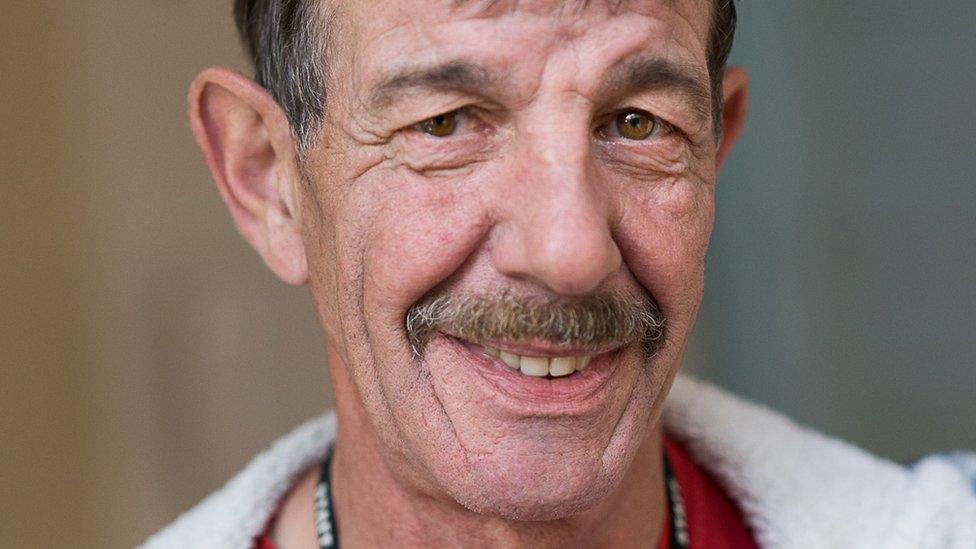
- Published24 January 2024
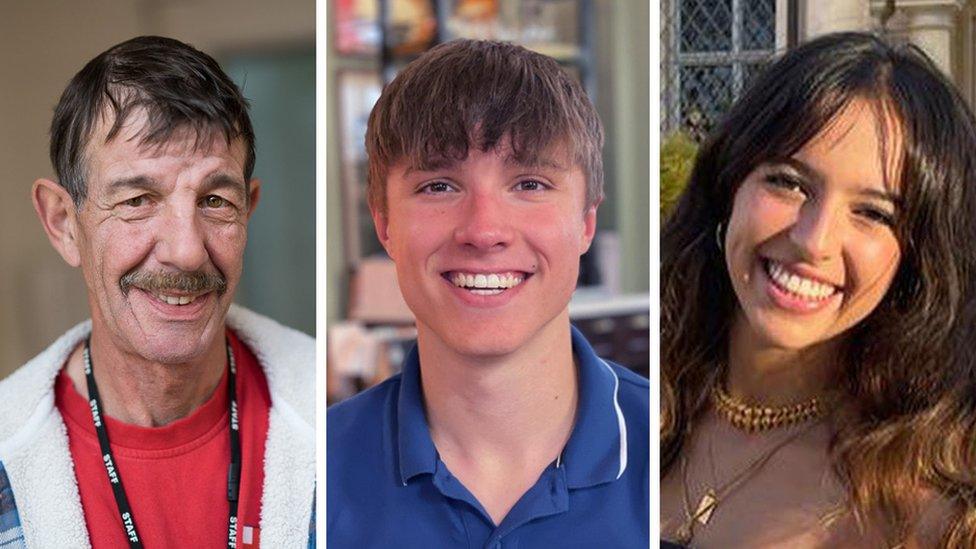
- Published23 January 2024

- Published23 January 2024
